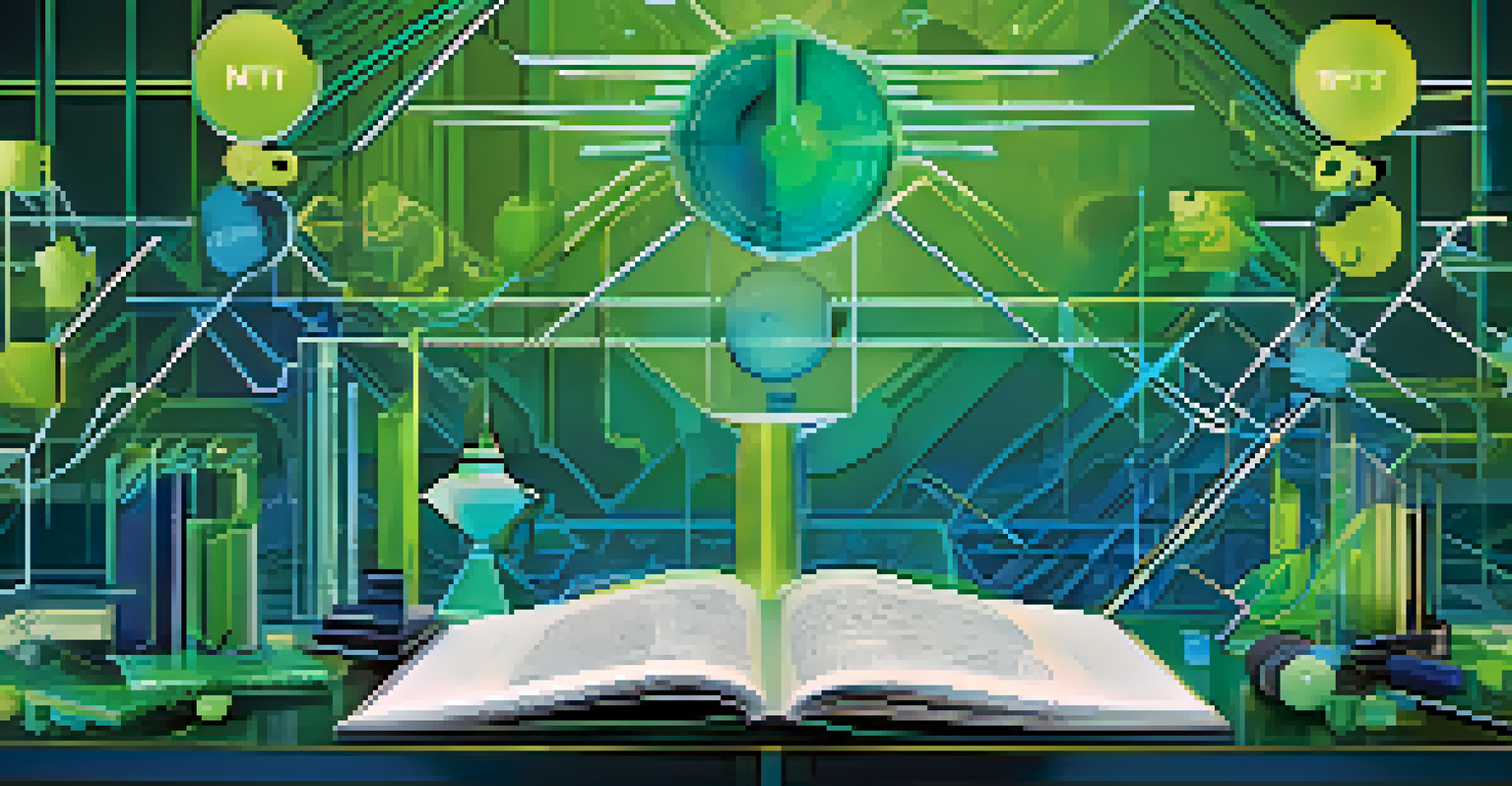NFT Licensing Agreements: Navigating Legal Complexities

What Are NFT Licensing Agreements and Why Do They Matter?
NFT licensing agreements are contracts that define how non-fungible tokens (NFTs) can be used, shared, and monetized. These agreements are essential for creators and buyers alike, as they clarify ownership rights and usage conditions. Without a solid licensing agreement, both parties might face misunderstandings or disputes over the rights associated with the NFT.
Intellectual property is the oil of the 21st century.
Imagine you purchase a beautiful painting. While you own the artwork, the artist still retains the rights to reproduce it. The same principle applies to NFTs, where the licensing agreement outlines whether the buyer can use the NFT for commercial purposes or merely for personal enjoyment. Thus, understanding these agreements can save you from potential legal headaches down the road.
As the NFT market continues to grow, so does the importance of clearly defined licensing agreements. They not only protect the interests of creators but also empower buyers to understand their rights fully. In this digital age, recognizing the value of these agreements is crucial for anyone involved in the NFT space.
Key Components of an NFT Licensing Agreement
An effective NFT licensing agreement typically includes several key components: the scope of the license, duration, and any limitations on usage. The scope defines what the licensee can and cannot do with the NFT, such as whether they can sell, display, or create derivative works. Having this clarity can prevent disputes and ensure both parties are on the same page.

Duration is another critical element—some agreements grant perpetual rights, while others might limit usage to a specific timeframe. Think of it like renting a car versus owning it; the terms of your agreement will dictate how long you can enjoy the benefits. Establishing clear timeframes in NFT agreements helps manage expectations and responsibilities.
Importance of NFT Licensing Agreements
NFT licensing agreements clarify ownership rights and usage conditions, protecting both creators and buyers in the evolving digital landscape.
Lastly, limitations are crucial; they can specify geographical restrictions, or stipulate that the NFT cannot be used for commercial purposes. By addressing these components upfront, creators and buyers can avoid potential legal issues and have a more enjoyable experience within the NFT marketplace.
Understanding Ownership vs. Intellectual Property Rights
In the world of NFTs, ownership does not automatically equate to intellectual property rights. When someone purchases an NFT, they typically acquire the token itself and not the underlying artwork or content's copyright. This distinction can be confusing, especially for those new to the NFT scene, but it's crucial for navigating licensing agreements effectively.
The greatest danger in times of turbulence is not the turbulence—it is to act with yesterday's logic.
For example, if you buy an NFT of a digital artwork, you may have the right to display it but not to reproduce or sell prints of it. The original creator generally retains those rights unless explicitly transferred in the licensing agreement. Understanding this difference can help you make informed decisions when purchasing or creating NFTs.
Therefore, when entering into a licensing agreement, it’s essential to clarify what rights are being transferred. This ensures that both parties understand their legal standing and helps prevent potential infringement claims down the line.
Common Legal Issues Surrounding NFT Licensing
Despite the excitement surrounding NFTs, legal issues can arise, particularly regarding copyright infringement and unauthorized use. For instance, if an artist creates an NFT using someone else's artwork without permission, they could face serious legal repercussions. This highlights the importance of ensuring that all content used in NFTs is original or properly licensed.
Moreover, ambiguity in agreements can lead to disputes over ownership and rights. For example, if a creator sells an NFT but does not specify the rights retained, the buyer may assume they have broader rights than intended. Such misunderstandings can result in costly legal battles, making it vital for all parties to have clear, well-defined agreements.
Key Components of Licensing Agreements
Effective NFT licensing agreements should include the scope of the license, duration, and limitations to prevent disputes and ensure clarity.
Overall, being aware of potential legal pitfalls can help both creators and buyers navigate the NFT landscape more safely. Establishing robust licensing agreements can mitigate these risks, providing peace of mind and fostering a healthier NFT ecosystem.
The Role of Smart Contracts in NFT Licensing
Smart contracts are self-executing contracts with the terms of the agreement directly written into code. They play a crucial role in NFT licensing by automating transactions and ensuring that all parties adhere to the terms outlined in the agreement. This technology adds a layer of security and transparency that traditional contracts often lack.
For example, a smart contract can automatically transfer ownership of the NFT upon payment, ensuring that the buyer receives their asset without delay. Furthermore, these contracts can include royalty provisions, allowing creators to earn a percentage of future sales. This aspect is particularly appealing to artists and creators who want to benefit from the ongoing value of their work.
As the NFT landscape evolves, the use of smart contracts is likely to become more widespread, streamlining the licensing process and enhancing trust among participants. By leveraging this technology, both creators and buyers can navigate the complexities of NFT licensing with greater confidence.
Best Practices for Negotiating NFT Licensing Agreements
When entering negotiations for an NFT licensing agreement, it’s important to approach the process with clear communication and an understanding of key terms. Start by outlining your expectations and goals, whether you’re a creator looking to protect your work or a buyer wanting to maximize your rights. Clear dialogue can help prevent misunderstandings later on.
Additionally, don’t hesitate to seek legal advice when drafting or negotiating agreements. A knowledgeable attorney can help clarify complex legal jargon and ensure that your interests are adequately protected. Remember, a well-drafted agreement can save you time, money, and stress in the long run.
Role of Smart Contracts in NFTs
Smart contracts automate NFT transactions and enforce the terms of licensing agreements, enhancing security and transparency in the marketplace.
Finally, be open to compromise. Negotiation is often about finding a middle ground that satisfies both parties. Whether you’re adjusting terms or clarifying rights, a collaborative approach can lead to a more successful and harmonious partnership in the NFT space.
Future Trends in NFT Licensing and Legal Landscape
As the NFT market matures, we can expect to see more standardized practices for licensing agreements. This evolution may include clearer guidelines for rights and restrictions, helping both creators and buyers navigate the complexities of NFT ownership. Such standardization can foster greater trust and participation in the market.
Furthermore, legal frameworks surrounding NFTs are likely to evolve as regulators focus on this burgeoning industry. This shift could lead to more robust protections for intellectual property rights, thereby enhancing the overall health of the NFT ecosystem. Staying informed about these changes will be essential for anyone involved in the NFT space.

Ultimately, as the landscape continues to develop, both creators and collectors will need to adapt to new norms and expectations. Embracing change and remaining proactive about licensing agreements will be key to thriving in this exciting and dynamic environment.